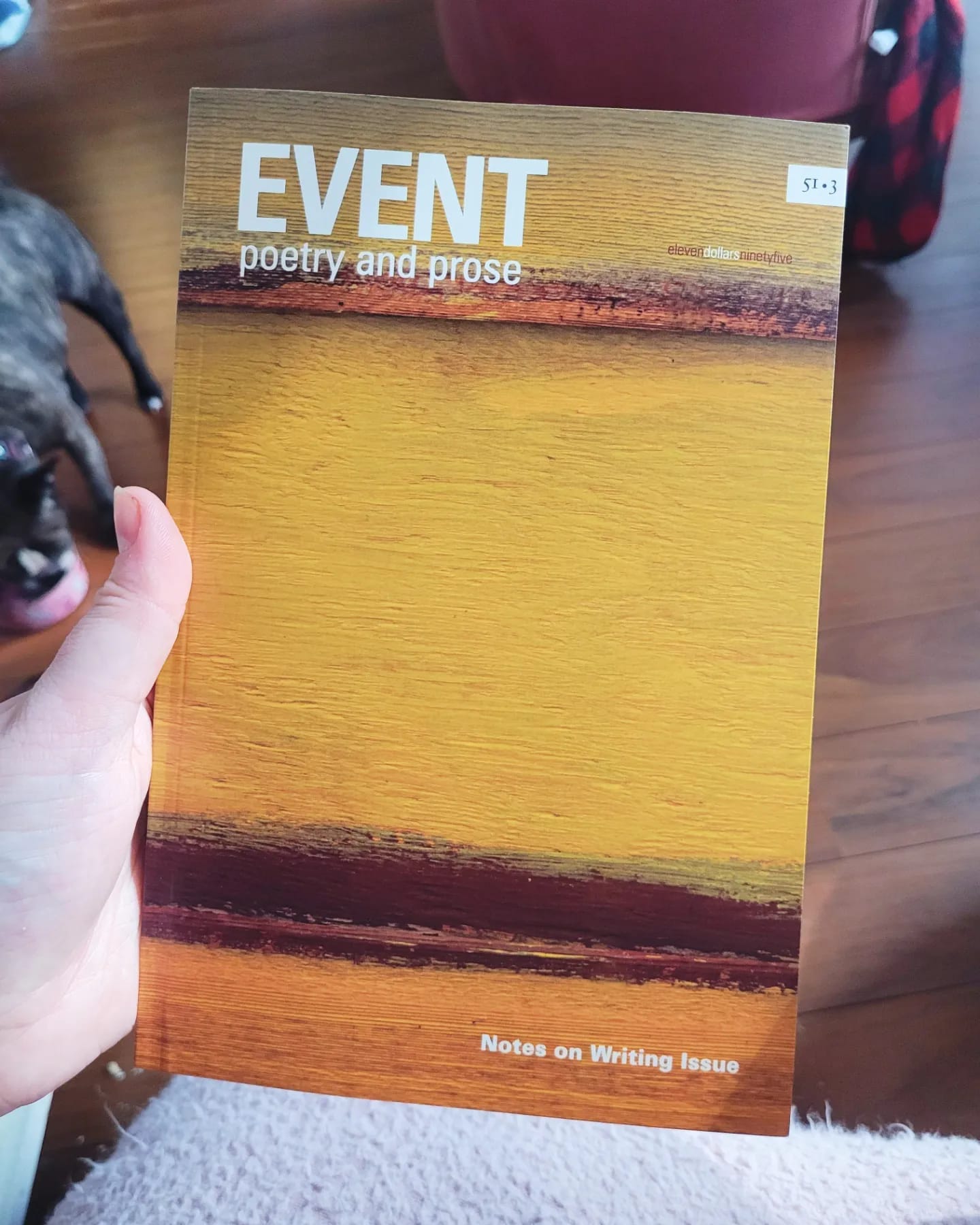There is a common misconception that once you get to a certain level of your writing career, you don't experience the same level of rejection as you did when you were first starting out.
I'd have to agree. I experience far more rejection now than I ever did before.
Part of this is statistics. I'm submitting more material, and I submit each piece I write to a wider variety of places.
I've broken down my submission statistics for last year below. In 2022, I submitted the following:
10 essay pitches
14 essay submissions (not counting 10 withdrawn submissions for an accepted essay in 2023)
19 poetry submissions
5 chapbook submissions
6 short story submissions
And here is what was accepted
4 accepted essay pitches
1 accepted essay submission (solicited)
0 poetry acceptances
1 chapbook acceptance
1 short story acceptance (solicited)
I applied for a few awards and received 0 acceptances. I applied for 3 grants and got 3 grant acceptances. I applied for hundreds of publishing industry jobs, received 3 interviews, and got 0 offers.
On submission with a novel, we pitched to 25 publishers, heard back from 15, received 3 "almosts", and one full offer.
I'm sharing all of this not to wallow, or to brag, but for the sake of transparency. Early in my writing career, I had a really high acceptance rate for short stories; Since I wrote The Pump, I've written a single short story, and it took years to find it a home. I write less, write more slowly, and submit more.
I even had rejections for solicited pieces.
And yet, I feel like I'm the least affected by writing rejections that I've ever been. I get so many, so often, that I'm desensitized to them. I learned quickly not to have expectations for certain pieces to be published in certain places. Honestly, I learned quickly not to have any expectations for pieces at all. Some pieces go on submission for years before they find a home. Some pieces never actually get published. The more work I'm writing, the less attached I am to the outcome of every submission.
It's important to remember that every single rejection you receive is subjective, and isn't objective proof that a piece isn't publishable.
Your piece may not be ready yet, or it may not be a good fit for a particular journal, but that doesn't equate to "give up on this piece".
After I receive a certain number of rejections on a piece, I give myself some space from it, then re-approach it with some editing. I then try to do a fair amount of research on the types of places that would be a good fit thematically, not just literary journals that I know of.
The worst rejections are the ones that you focus on. If you submit something to a single place, you're going to define that piece as either worthy or unworthy depending on the answer to that one submission. The more submissions I have going at one time, the less I care about each individual submission.
It's also nice to be working on something that isn't ready for submission at the same time as you're submitting other pieces. It's not only a nice distraction, but it can remind you what you love about writing.
I try to have a new project at the back of my mind that is always separate from the one on submission–something I can go back to when rejection gets to be too demoralizing.
I’m the kind of writer that romanticizes starting a new project, so I use that to my advantage. When I’m feeling bad through editing or submission, I can always return to a new project with a sense of wonder and curiosity. The editing and submission stages of writing are necessary, yes, but so is holding on to that curiosity for the new. That new project will be on its own submission and rejection journey in due time. For now, use it to draw you back into the magic of the craft.
I received three different rejections while writing this newsletter essay. With more to come, I’m sure. Writing is writing, but writing is also waiting, and writing is also editing, and writing is also rewriting, and writing is also putting aside, and writing is also ignoring, and writing is also saving for later, and writing is also submitting, and writing is also resubmitting, and writing is also leaving the blank page to go live a life worth writing about.
Go and write in all the ways you know how, all at once. There will be time for it all.
With love,
News from the Marsh
1. I'm honoured have my contributor's copy of EVENT Magazine 51.3, to which I contributed a Notes on Writing essay called "The Great Iconoclast" alongside two writers I admire: Brandi Bird and Aimee Wall. Grateful to Shashi Bhat for giving me space to talk craft, sexuality, and God all at once.
Notes on Writing is a tradition at EVENT, going back to the 70s. My contribution arrives in your hands thanks to a long line of brilliancy before me, including the likes of Patrica Young, Nino Ricci, Eden Robinson, Zoe Whittall, Joshua Whitehead, and many others.
You can purchase that copy of EVENT here.
4.) My poetry chapbook The Last Thing I Will See Before I Die is now available from 845 Press. You can purchase it here.
5.) The Pump will be translated into French by Kama La Mackerel and published by Les éditions l'interligne. You can read more about that here.
I update my events and publishing things frequently on my website, so take a browse there if you’re ever wondering what I’m up to. And, of course, subscribe to Marsh Mail if you want more of these kinds of musings in your inbox.
Sydney Hegele is the author of The Pump (Invisible Publishing 2021), winner of the 2022 ReLit Literary Award for Short Fiction and a finalist for the 2022 Trillium Book Award. Their essays on life with Dissociative Identity Disorder have appeared in Catapult and Electric Literature, and featured by Lithub, the Poetry Foundation, and Psychology Today. Their novel Bird Suit is forthcoming with Invisible Publishing in Spring 2024, and their essay collection Bad Kids is forthcoming with Invisible in Fall 2025. They live with their husband and French Bulldog on Treaty 13 Land (Toronto, Canada).








This is so helpful!! And heartening. Thank you for writing 💛